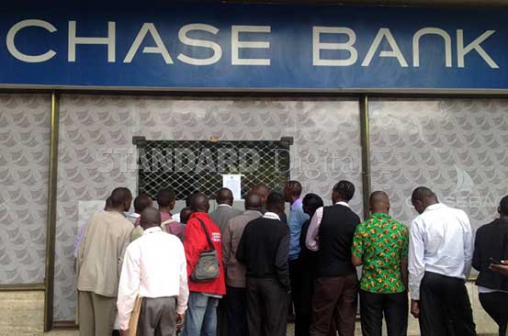×
The Standard e-Paper
Smart Minds Choose Us

The wheels of time have moved the banking sector into 2016; an era of modernity and advanced financial inclusion. However, it appears the old scary talk of receivership, liquidation and consolidation never left.
Yesterday, the nation woke up to the news that another lender, Chase Bank, had been put under receivership and that customers can no longer access their money.







